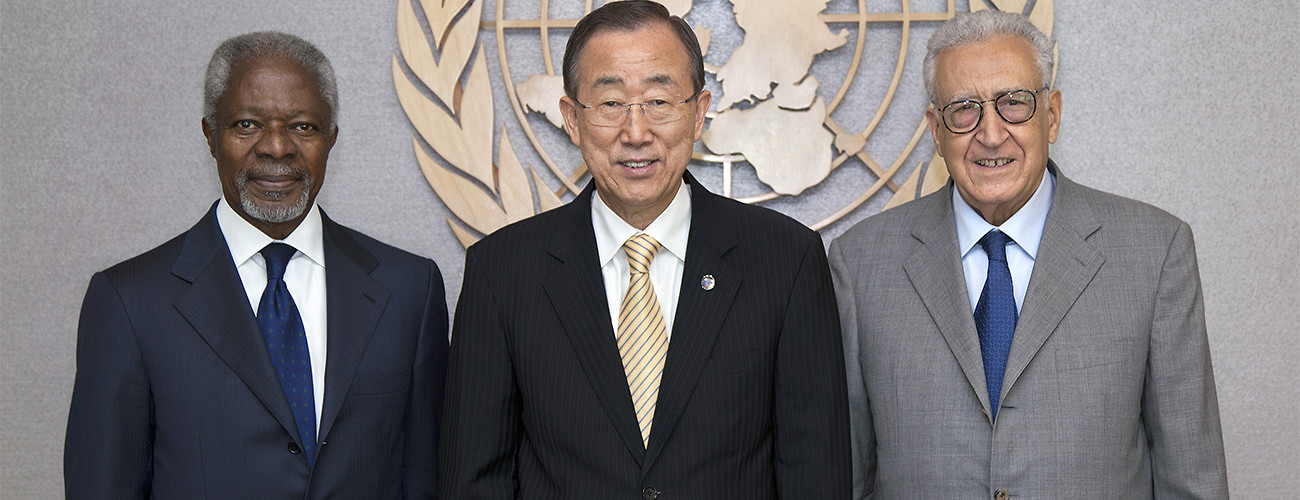Kofi Annan and Lakhdar Brahimi appeared to be the perfect candidates to find a way out of the Syrian civil war. The odds, however, were stacked against them. The Syrian regime was prepared to do whatever necessary to survive, whatever the cost to the country. At the same time, the opposition was unwilling to accept a political compromise, which, in any case, it was too divided to agree on. Fueled by external patrons, both sides tried to win by escalating the level of violence. Because they felt they could—and had to—win, they were not welcoming of mediation. In this unfavorable context, Annan and Brahimi failed, and despite their considerable acumen, their worst nightmares came to pass.
Could events have turned out differently? What was the strategy of the mediators? Despite overall failure, what were their achievements? The latest report by IPI attempts to answer these questions and identify what lessons the experiences of Annan and Brahimi could offer for ongoing or future mediation processes. These lessons include:
- Mission and mandate: Both mediators faced a restrictive and contradictory mandate, under which the regime was expected to make major concessions. Confusion over the mandate encouraged the opposition to treat Assad’s departure as a precondition for, rather than an end result of, negotiations.
- Impartiality and inclusivity: In part due to their mandate, which came from both the UN and the anti-Assad Arab League, the mediators were not perceived as wholly impartial. Inclusivity was also uneven, with key parties missing at every stage.
- Entry and consent: The mediators never had a favorable point of entry, since the parties and their supporters never felt the conflict to be a mutually hurting stalemate. Instead, with both sides willing to withstand high levels of suffering, a self-serving stalemate took hold.
- Strategy: Both mediators attempted to build confidence through cease-fires, but these would not hold without parallel movement toward resolving the conflict. The mediators focused on US-Russian relations, but agreement between the two was shallow.
- Leverage: Without the means to follow through on threats or promises, the mediators were reduced to making warnings and predictions. They cultivated and counted on the great powers feeling a need to end the conflict, but the Syrians did not see it that way and entrapped their patrons.








